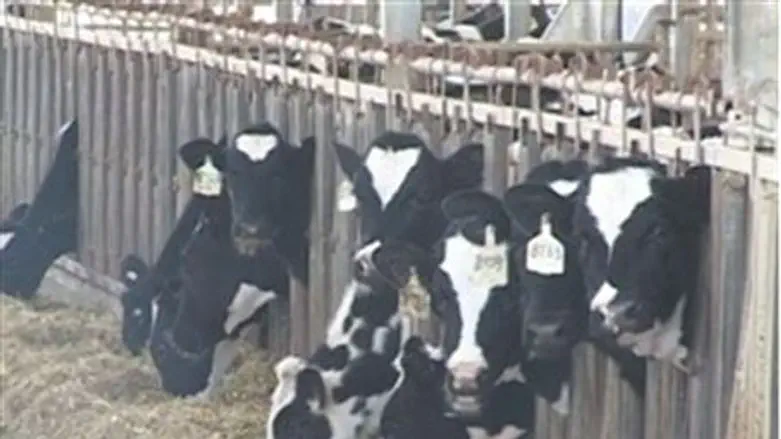
Among its other achievements, Israel is the undisputed world leader in per capita milk production – meaning that Israeli cows produce more milk per cow than bovines anywhere else. By way of comparison, Israeli cows yield on average 12,000 liters of milk a year – compared to an average of 6,000 per year in the U.S. and the U.K., and between 3,000 and 4,000 in India and China. As a result, representatives of countries around the world flock to Israel for help in improving their dairy output – with Israel happily helping out and improving its relationship with a host of nations, engaging in what could be called “dairy diplomacy.”
One country which has turned to Israel for help is South Korea, where the dairy industry has been virtually wiped out over the past year, thanks to an epidemic foot and mouth disease. Hundreds of thousands of cows, along with pigs, goats, and and deer, were culled over the past year, including over 50,000 milk cows. Milk from infected cows was destroyed, and by the time it was over, over three million animals had been destroyed.
The majority of animals destroyed were pigs, with pork a mainstay of the South Korean diet – but almost 20% of dairy cows were destroyed as well. Since the height of the outbreak last winter, the country has opened the market to imports of meat and dairy products, but authorities have been trying numerous strategies to rebuild their own herds.
The crisis has led South Korean officials to Israel. The head of the largest dairy cooperative in the country, Seoul Milk, was in Israel this week examining some of Israel's technologies, along with 55 executives in the company.
Among the companies the delegation will be visiting in Israel is Netanya's SCR Engineering, the world's largest largest manufacturer of electronic milk measurement devices. The devices allow farmers to keep a constant eye on cows, observing them for the first sign of illness or conditions, such as Ketosis, that would hamper their ability to produce milk. The devices can also measure, for example, how much cows are eating, and whether changes in feed can increase their milk output. The company offers numerous other solutions, as well.
Speaking of the company's Korean guests, SCR marketing executive Uri Anber said that it would take years for South Korea's dairy industry to recover from this year's devastation. “The government there is providing free inoculations for cows that have not been infected, and is allowing a massive import of milk powder to ensure a supply of dairy products,” Anber said. “We can help them recover, as we provide solutions in the area of bovine nutrition, developing a productive 'work environment' for cows, and milking technologies. Our solutions can help increase milk production in a very short time.”